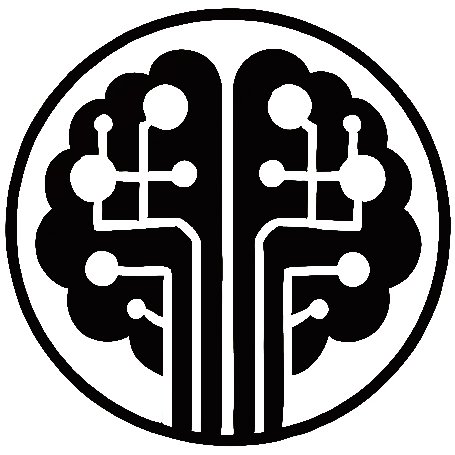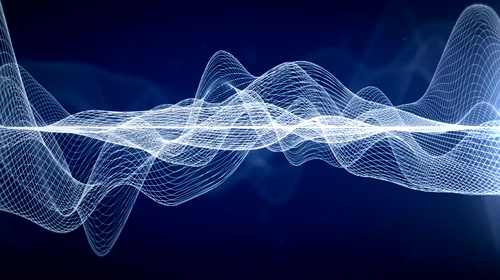
Brain-PACER
A new treatment study for addictions
Brain-PACER:
Deep Brain Stimulation for Addiction Treatment
Welcome to Brain-PACER: Brain Pacemaker Addiction Control to End Relapse study. This is a multicentre research study using deep brain stimulation (DBS) to treat severe alcohol or opioid addiction. DBS is a neurosurgical procedure that delivers ongoing stimulation to the brain. Similar to a heart pacemaker, DBS acts as a brain pacemaker to normalise abnormal brain activity.
DBS is well-tolerated, effective and widely used for neurological disorders and obsessive compulsive disorder. It has been approved by the FDA and CE-marked since 1997 for neurological disorders. Multiple small studies suggest DBS is effective in addictions. Here we are using DBS for refractory addiction to treat craving and relapse. The study is a collaboration between the University of Cambridge, Kings College London, and the University of Oxford.
We are recruiting patients for the study.
Study Overview
The primary aim of the Brain-PACER study is to assess the effects of DBS to treat alcohol and opioid addiction in a randomised controlled trial study, providing new hope for individuals struggling with severe addictions. Our mission is twofold: to develop effective treatments for addiction and to understand the brain mechanisms that drive addiction disorders.
Addiction is a major public health issue. It is a significant challenge worldwide, impacting millions of lives. DBS, a well-established and FDA-approved treatment for conditions like Parkinson’s disease (1997)1,2, dystonia (2003)3, and severe OCD (2009)4,5, is now being explored as a method for addiction treatment6-8. Several small studies of DBS in addictions confirm safety and potential efficacy. Our study aims to provide robust evidence for the efficacy of DBS in treating refractory addictions, potentially transforming therapeutic approaches and improving patient outcomes.
Brain-PACER will also focus on the latest advancements in neurotechnology to understand underlying mechanisms of addiction and develop better personalised treatments focusing on preventing craving and relapse.

1 Lachenmayer, M. L. et al. Subthalamic and pallidal deep brain stimulation for Parkinson’s disease—meta-analysis of outcomes. npj Parkinsons Dis. 7, 1–10 (2021). https://doi.org/10.1038/s41531-021-00223-5
2 Deuschl, G. et al. A Randomized Trial of Deep-Brain Stimulation for Parkinson’s Disease. New England Journal of Medicine 355, 896–908 (2006). https://doi.org/10.1056/NEJMoa060281
3 Isaias, I. U., Alterman, R. L. & Tagliati, M. Deep Brain Stimulation for Primary Generalized Dystonia: Long-term Outcomes. Archives of Neurology 66, 465–470 (2009). https://doi.org/10.1001/archneurol.2009.20
4 Gadot, R. et al. Efficacy of deep brain stimulation for treatment-resistant obsessive-compulsive disorder: systematic review and meta-analysis. J Neurol Neurosurg Psychiatry 93, 1166–1173 (2022). https://doi.org/10.1136/jnnp-2021-328738
5 Menchón, J. M. et al. A prospective international multi-center study on safety and efficacy of deep brain stimulation for resistant obsessive-compulsive disorder. Mol Psychiatry 26, 1234–1247 (2021). https://doi.org/10.1038/s41380-019-0562-6
6 Bach, P. et al. Deep brain stimulation of the nucleus accumbens in treatment-resistant alcohol use disorder: a double-blind randomized controlled multi-center trial. Transl Psychiatry 13, 49 (2023). https://doi.org/10.1038/s41398-023-02337-1
7 Davidson, B. et al. Deep brain stimulation of the nucleus accumbens in the treatment of severe alcohol use disorder: a phase I pilot trial. Molecular Psychiatry 27, 3992–4000 (2022). https://doi.org/10.1038/s41380-022-01677-6
8 Chen, L. et al. Long-term results after deep brain stimulation of nucleus accumbens and the anterior limb of the internal capsule for preventing heroin relapse: An open-label pilot study. Brain Stimulation 12, 175–183 (2019). https://doi.org/10.1016/j.brs.2018.09.006
Addictions can be broadly thought of as an imbalance of an accelerator – motivation and drive underlying addiction rewards, and impaired braking – decision-making, control and flexibility. The Brain-PACER study employs DBS stimulation to address this imbalance by delivering precise electrical stimulation to brain regions to regulate the neural circuits responsible for addictive behaviours.
Target Areas for Brain-PACER DBS
- Nucleus Accumbens: This region is crucial for motivation, processing rewards and reinforcing behaviours. By modulating its activity, we aim to reduce the urge for repeated alcohol and drug use. This modulation can alter dopamine signalling, essential in the reward pathway, thereby helping to reduce cravings.
- Ventral Internal Capsule: This area contains pathways that connect different parts of the brain involved in decision-making and emotion. Stimulation here helps regulate decision-making and impulse control by linking the prefrontal cortex, responsible for higher-order executive functions, with deeper brain structures involved in reward. Stimulation here addresses the underlying neural mechanisms of addiction by improving impulse control and decision-making processes.
Stimulating these two areas aims to reduce cravings and improve control over addictive behaviours by modulating the brain circuits involved in reward, motivation, and decision-making.
DBS is a neurosurgical treatment that involves implanting a slender electrode in the brain and a pacemaker under general anaesthesia. These electrodes deliver electrical impulses to modulate neural activity, which can help alleviate symptoms of various neurological and psychiatric disorders. DBS has been safely and effectively used since the late 1980s, with FDA and CE-marked approvals for several neurological and psychiatric disorders, ensuring its credibility and reliability as a treatment option.
- Implantation: During surgery, thin electrodes are carefully placed in precise locations of the brain. These locations are chosen based on the condition being treated. For addiction, the electrodes are placed in areas involved in reward, motivation, and decision-making.
- Device Connection: The electrodes are connected to a small battery-powered device called a pulse generator, which is usually implanted under the skin near the collarbone. This device sends electrical impulses to the brain.
- Stimulation: The electrical impulses from the pulse generator help regulate abnormal brain activity. In the case of addiction, these impulses may help reduce cravings and improve self-control by modulating brain circuits involved in these behaviours.
- Adjustment: After the surgery, doctors can adjust the settings of the device to ensure it provides the most benefit. This process is usually done through a wireless connection to the pulse generator.
This treatment is reversible and adjustable, making it a flexible option for managing chronic conditions. By understanding and harnessing the brain’s electrical signals, DBS offers a way to improve the quality of life for many patients.
Brain-PACER is a large multicentre study conducted throughout the UK. Led by Professor Valerie Voon of the Voon Lab at the University of Cambridge Department of Psychiatry, the study is funded by the Medical Research Council (MRC) and operates under ethics approval of the Cambridge University Hospital and University of Cambridge.
In collaboration with Kings College Hospital, the Institute of Psychiatry, Psychology, and Neuroscience (IoPPN) at King’s College London, under the South London and Maudsley (SLaM) NHS Foundation Trust, and the University of Oxford, this study spans multiple institutions known for their high-quality research.
Interested in Participating?
We welcome individuals with severe alcohol or opioid addiction who are interested in a new treatment study using deep brain stimulation (DBS) which is safe, well-tolerated, and widely-used in Parkinson’s disease and obsessive compulsive disorder.
Here’s how you can enrol in the Brain-PACER study:
- Eligibility
- Review the inclusion and exclusion criteria listed on the Participation Information tab below to determine if you qualify for the study.
- Review the inclusion and exclusion criteria listed on the Participation Information tab below to determine if you qualify for the study.
- Compensation
- For details on how participating in our study can benefit both you and society, please visit our Benefits of Participation tab. There, you’ll find comprehensive information on the personal and broader impacts of joining our research.
- For details on how participating in our study can benefit both you and society, please visit our Benefits of Participation tab. There, you’ll find comprehensive information on the personal and broader impacts of joining our research.
- Contact Us
- If you meet the eligibility criteria, please consult with your addiction therapy team and reach out to us using the email addresses listed under the Contact Us tab. We’re here to guide you through the initial steps and answer any questions you may have.
Participation Information
Recruitment Target
We are seeking participants for a research study focusing on Alcohol Use Disorder (AUD) and Opioid Use Disorder (OUD).
Inclusion Criteria
To be eligible for participation in this study, individuals must meet the following criteria:
- Age: 18 – 60 years old
- Diagnosis: Diagnosed with AUD or OUD according to DSM-5 criteria
- Duration of Disorder: A minimum of 5 years with the disorder
- Abstinence Attempts: At least 3 failed attempts at abstinence
- Previous Treatments: Failed psychotherapy and standard pharmacotherapy
Exclusion Criteria
Participants will be excluded from the study if they meet any of the following conditions:
- Serious Psychiatric Disorders: Includes conditions such as schizophrenia or bipolar disorder (however, comorbidities like moderate depression, OCD, and anxiety disorders are acceptable)
- Substance Use: Other substance use disorders are acceptable if AUD or OUD is the primary diagnosis
- Substitution Therapy: Can be on opioid substitution therapy with occasional breakthroughs (at least 1 per week or 5 per month)
- Neurosurgical Contraindications: Such as inability to tolerate general anaesthesia or high risk of bleeding
- Medical History: History of repeated falls, major head injury, marked cognitive impairment, cortical atrophy, or end-stage liver disease (advanced cirrhosis)
Ideal Candidate Profile
We are looking for reliable and motivated individuals who:
- Commitment: Are consistent in attending follow-ups and highly motivated to quit their addiction
- Challenges: Have faced repeated relapses despite adequate therapy
Benefits of Participation
Participating in our deep brain stimulation (DBS) study for treatment-refractory or severe alcohol use disorder or opioid use disorder offers several potential benefits:
Health Benefits
- Innovative Treatment: Gain access to cutting-edge DBS therapy, which may provide relief from addiction symptoms when other treatments have failed.
- Comprehensive Care: Benefit from comprehensive medical and psychological support throughout the study.
- Personalised Approach: Receive a personalised treatment plan tailored to your specific needs and monitored by leading experts in the field.
Compensation
- Financial Compensation: Participants will receive £500 in financial compensation for their time and effort in contributing to this important research. Further compensation will cover travel expenses and time spent participating in study-related activities.
- Medical Evaluations: Participants will undergo thorough medical evaluations at no cost, providing insights into their overall health and potential areas for medical attention.
Contribution to Science
- Advancement of Knowledge: Your participation will contribute significantly to scientific understanding and advancements in the treatment of addiction. The data collected will help researchers develop more effective treatments for those struggling with severe addictions.
- Future Impact: By participating, you help pave the way for future patients to receive better care and treatment options, potentially transforming addiction therapy.
Your involvement in this study is crucial. By participating, you are not only helping yourself but also contributing to a broader effort to combat addiction and improve the lives of countless others facing similar challenges.
Contact Us
We welcome all general inquiries regarding the Brain-PACER study. Whether you have questions about our research or participation opportunities, we are here to help.
General Inquiries:
- Email:
info@brain-pacer.com
Recruitment Inquiries:
- Email:
recruitment@brain-pacer.com
Visit Us:
Our research team is based at multiple locations, including the University of Cambridge, King’s College London, and the University of Oxford. If you would like to visit our facilities or arrange a meeting, please contact us to schedule an appointment.
For more information or to speak directly with a member of our team, please use the contact details provided above. We look forward to hearing from you and appreciate your interest in our work.
Our Study Sites
Cambridge Site:
Addenbrooke’s Hospital
Department of Psychiatry, University of Cambridge,
Addenbrooke’s Hospital, Hills Rd,
Cambridge CB2 0QQ, United Kingdom
London Site:
King’s College Hospital (KCH)
King’s College Hospital, Denmark Hill,
London SE5 9RS, United Kingdom
Meet Our Team
The Brain-PACER study brings together a large, multidisciplinary team of leading experts in neuropsychiatry, addiction psychiatry, neurosurgery, and neuroengineering to ensure the highest quality research and participant care.
A second, dedicated team of research personel supports the study by implementing the study protocol, assisting with data collection and management, and ensuring smooth day-to-day operations.
To learn more about the individuals involved, please click on the Research Team tab below and explore our team members’ profiles. We are located at the University of Cambridge, at the Institute of Psychiatry, Psychology and Neuroscience (IoPPN) of King’s College London and the University of Oxford.
Research Team
Chief Investigator
Valerie Voon
MD, PhD
Professor, University of Cambridge
Distinguished Professor, Fudan University
Honorary Consultant Psychiatrist
Cambridge

Neuropsychiatry
David Okai
MD(Res), MRCPsych, DipCBT
Consultant Neuropsychiatrist
IoPPN

David Christmas
MBChB, MD, MRCPsych
Honorary Consultant Psychiatrist
Cambridge

Addiction Psychiatry Consultants
Sir John Strang
MBBS, FRCPsych, FRCP, MD, F.Med.Sci.
Professor, Head of Addictions Medicine Department, KCL
Leader of the Addictions Clinical Academic Group
IoPPN
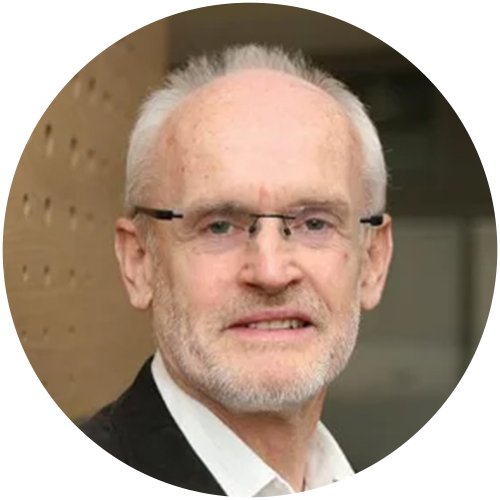
Michael Kelleher
MBChB, MRCPsych
Consultant Addictions Psychiatry at South London and Maudsley NHS Trust
IoPPN

Jonathon Wood
MBChB, MRCPsych
Addiction Psychiatrist
Cambridge

Soraya Mayet
MBChB, MRCPsych
Addiction Psychiatrist
Humber NHS Foundation Trust

Nicola Kalk
MBChB, MRCPsych, PhD
Consultant Addictions Psychiatry at South London and Maudsley NHS Trust
IoPPN
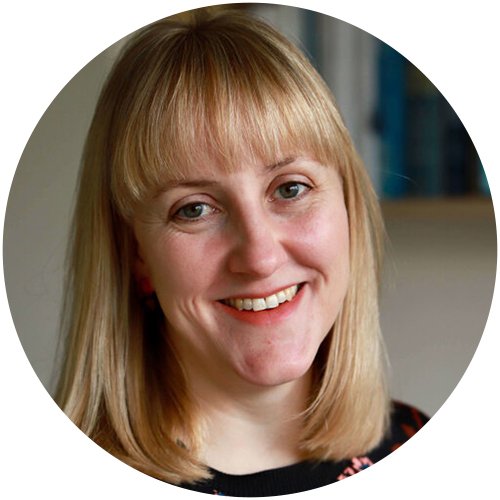
Emily Finch
MBChB, MRCPsych, PhD
Addiction Psychiatrist at South London and Maudsley
Clinical Director of Addictions Clinical Academic Group
IoPPN

Neurosurgery
Keyoumars Ashkan
BA (Hons), BSc (Hons), Dip Mus, MB BCh (Commend), MD, MRCP (UK), FRCS (Eng.), FRCP, FRCPS (Glasg.), FRCPath, FRCS (SN)
Professor of Neurosurgery
Lead Clinician for Neuro-oncology
Chair of King’s Neurosciences Trial Unit
IoPPN
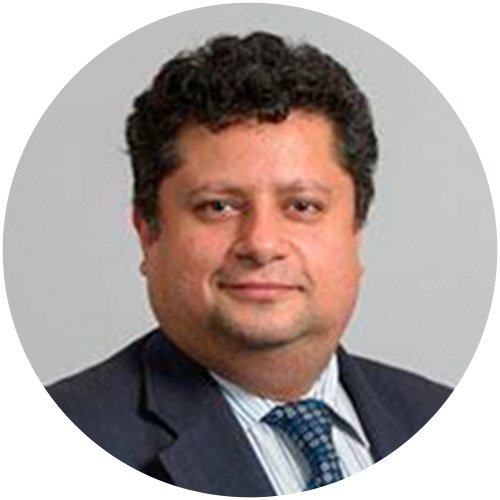
Peter Hutchinson
BSc (Hons), MBBS, PhD (Cantab), FRCS (Surg Neurol), FMedSci
NIHR Research Professor at the Department of Clinical Neurosciences, University of Cambridge
Consultant Neurosurgeon, Addenbrooke’s Hospital
Cambridge

Robert Morris
MA, MBChB, FRCS (SN)
Consultant Neurosurgeon, Addenbrooke’s Hospital
Cambridge

Neuroengineering
Tim Denison
PhD
Joint professor of Engineering Science and Clinical Neurosciences
Oxford

Huiling Tan
PhD
Professor of Human Electrophysiology and Neuromodulation
Oxford

Research Staff
Samantha Sallie
PhD
Clinical Trials Coordinator
Postdoctoral Scientist
Cambridge

Luis Manssuer
PhD
Postdoctoral Scientist
Cambridge

Federica Magnabosco
PhD
Postdoctoral Scientist
Cambridge

Qiong Ding
MS
Research Assistant
Cambridge

Ilona Myllyneimi
MA
Research Assistant
Cambridge

Oliver Knight
BA (Hons)
Research Assistant
Cambridge

Financial Support

This study is funded by the Medical Research Council (MRC) under study grant number MR/W020408/1. The MRC is a renowned funding body dedicated to advancing human health through exceptional medical research. Their support enables us to enhance our understanding of addiction and develop innovative treatments for individuals suffering from severe and treatment-resistant addictions.
While our primary funding comes from the MRC, we welcome additional financial support from individuals, organisations, and institutions passionate about advancing addiction research and treatment. Your contributions can help us expand our study, refine our methodologies, and ultimately provide better outcomes for patients struggling with addiction.
To see how you can support us, click on the Support Opportunities tab.
Support Opportunities
How You Can Help
- Individual Donations: Every contribution, regardless of size, can significantly impact our research. Your support can help us purchase essential equipment, fund participant care, and conduct comprehensive data analysis.
- Corporate Sponsorship: Organisations can partner with us to support specific aspects of our study. In return, we offer visibility and recognition for your support, as well as the opportunity to be part of groundbreaking research.
- Grant Funding: We welcome additional grant funding from institutions that share our commitment to improving mental health and addiction treatment.
For more information on how to support our study financially, please contact us at donate@brain-pacer.com. Your support is invaluable in helping us make a difference in the lives of those affected by addiction.
